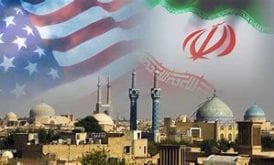Radiofarda – President Hassan Rouhani’s administration has barred dozens of well-known reformist figures from running for the Iranian parliament (Majles) in the upcoming election in February.
Interior Minister Abdolreza Rahmani Fazli said on Wednesday December 18 that the ministry’s executive committee for elections has endorsed the qualification of 91 percent of over 16,000 candidates for the 290 seats in the Majles. But the crucial aspect is the other nine percent, who were disqualified.
This is the first time in post-revolution Iran the presidential administration disqualifies election candidates before the Guardian Council starts its highly controversial vetting process also known as “discretionary supervision.”
Critics have been lashing out at Rouhani, who came to power in 2013 and 2017 with reformists’ help, for disqualifying reformist candidates for the February elections.
In a sense, Rouhani’s interior ministry has helped the Khamenei-controlled hardliner election watchdogs by accepting the burden of disqualifying reformists. Now, the controversial Guardian Council does not need to ban these candidates.SEE ALSO:To Vote Or Not To Vote? Protests Leave Iranians Undecided About Elections
One critic observed that Rouhani’s attempt to let down the reformists was possibly a tit-for-tat for what reformists did to Rouhani’s mentor, former President Rafsanjani during the 2010s. At that time, the reformists who had come to power with Rafsanjani’s help tarnished his image and prevented his political comeback.
Ali Mojtahedzadeh, a lawyer in Iran, accused Rouhani in a tweet of “hypocrisy and breaking promises” and called the disqualification of reformists candidates yet another “disgrace” for him.
Others like journalist Alireza Khoshbakht wrote that the disqualifications marked Rouhani’s alliance with the hard core of the Iranian establishment.
An Interior Ministry Official said that qualifications and disqualifications by the executive committee have been done after consulting the Intelligence Ministry, the Police, the Judiciary and the State Registration Office.
Fars news agency on Wednesday broke the news about the disqualification of several well-known reformist figures including Ali Shakouri Rad, Azar Mansouri, Amir Aryazand, Emad Behavar and Javad Emam. These figures hold leading positions in major Reformist parties including the Unity of Nation Party and Freedom Movement.
The Interior Ministry has not named the disqualified candidates. However, candidates such as Behavar, Mansouri broke the news about their disqualification on social media.SEE ALSO:Politician In Iran Says Without Free Elections Participation ‘Meaningless’
Meanwhile two incumbent reformist MPs from Shiraz, Bahram Parsaei and Ali Akbari have also said that they have been disqualified by the Interior Ministry. Parsaei told ISNA that the reason for his disqualification has been officially declared as “lack of commitment to the sacred political system of the Islamic Republic.”
Other well-known reformist figures such as Ahmad Hakimipour, and Dariush Qanbari have said they got the news of their disqualification via text messages from the Interior Ministry.
This comes while a few reform figures such as Presidential aide Shahindokht Molaverdi and poet Fatemeh Rakei are said to have passed through the net.
Supreme Leader Ali Khamenei had earlier criticized candidates for registering for the elections without calculating their potentials.
Iranian reformists have always ruled out discretionary vetting of candidates and accused the Interior Ministry and the Guardian Council of having factional motivations.
Following the government’s unusually heavy-handed suppression of the anti-government protests in November, some reformists have talked about boycotting the February elections. Others called on reformists and other political figures such as Khamenei critic Qadiani to register as candidates as their probable disqualification would bring further disgrace to Iranian hardliners who run most supervisory bodies including the Guardian Council and the Interior Ministry.
 Shabtabnews In this dark night, I have lost my way – Arise from a corner, oh you the star of guidance.
Shabtabnews In this dark night, I have lost my way – Arise from a corner, oh you the star of guidance.


